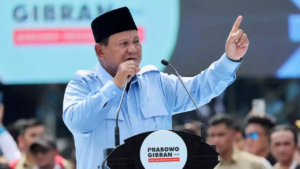Prabowo Subianto secures parliamentary majority a new era of governance for Indonesia
Prabowo Subianto, Indonesia's president-elect, has won a majority in the country's parliament after a huge political change.

The NasDem party, which earlier backed Prabowo’s competitor in the February 2024 election, has now joined his coalition. This decision increases Prabowo’s parliamentary dominance from 43% to 52%, which is likely to result in simpler legislative processes, including the upcoming 2025 budget ratification.
Prabowo, who is expected to take office on October 20, 2024, and vice president-elect Gibran Rakabuming Raka (the son of outgoing President Joko Widodo), expressed confidence that the new majority will foster a more stable and productive political environment. The group’s growth may also affect crucial political decisions, such as the upcoming Jakarta governor campaign, where Anies Baswedan, a previous competitor of Prabowo, is now facing issues due to the shifting political alignments.
With a parliamentary majority, Prabowo is likely to face less challenges in adopting legislation, particularly the critical 2025 budget. This majority also positions him well to forward critical programs, such as the completion of Indonesia’s new capital, Nusantara. This project, launched by outgoing President Joko Widodo, is expected to be a key emphasis of Prabowo’s administration. He has promised to carry the project through, guaranteeing that Nusantara is fully operational as the country’s capital within the next three to five years.
Prabowo’s building coalitions achievement not only increases his legislative power, but it also suggests a potential shift in Indonesia’s political dynamics. His ability to combine various factions around a shared goal may result in a more stable and effective government. However, this consolidation of authority raises concerns about the balance of power and the future of Indonesia’s democratic institutions.
As Prabowo prepares to enter office on October 20, 2024, Indonesia’s political and economic trajectory will be widely monitored, both domestically and globally. Decisions made early in his presidency have the potential to set the tone for his administration and have long-term consequences for Indonesia.
